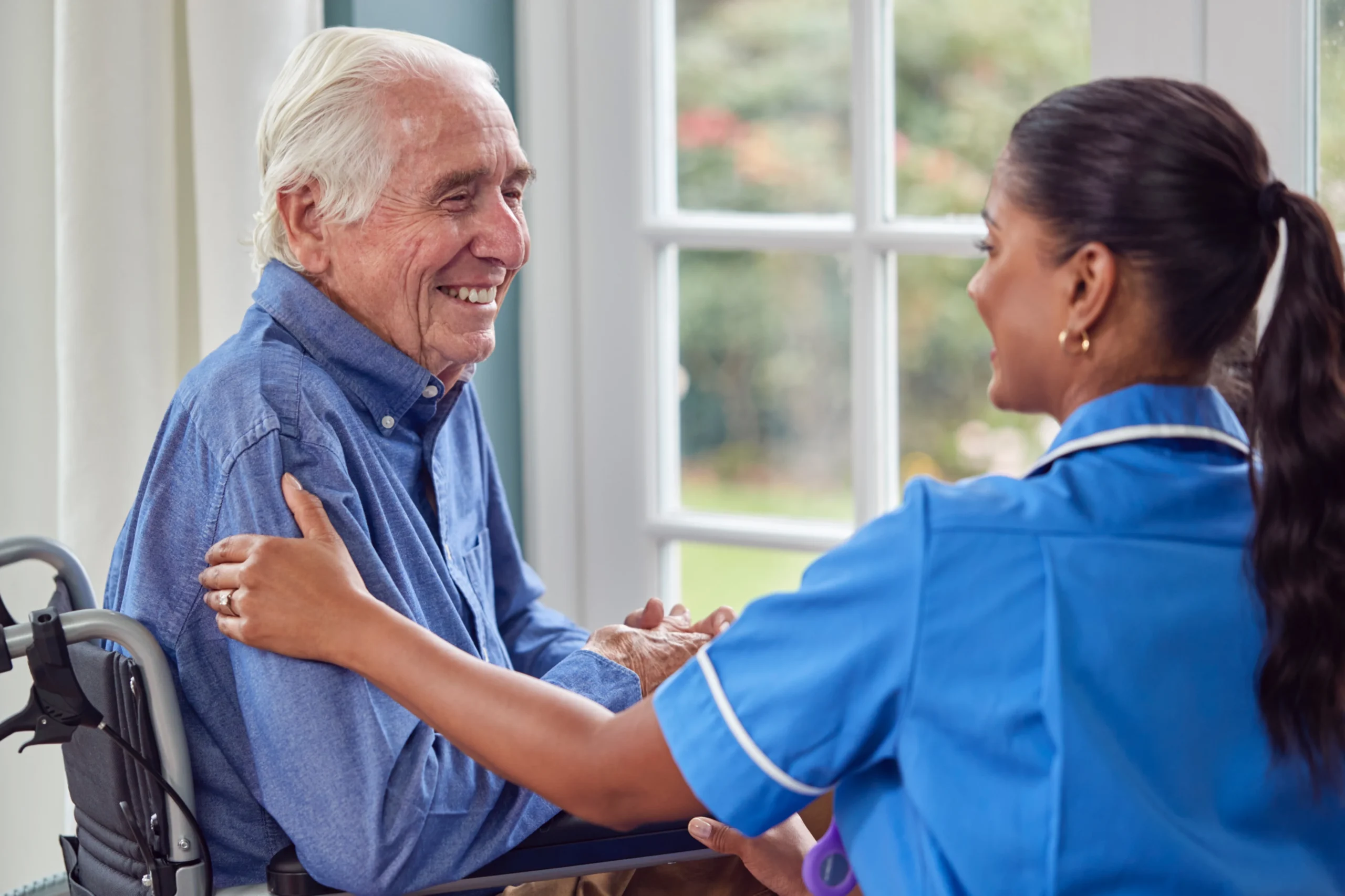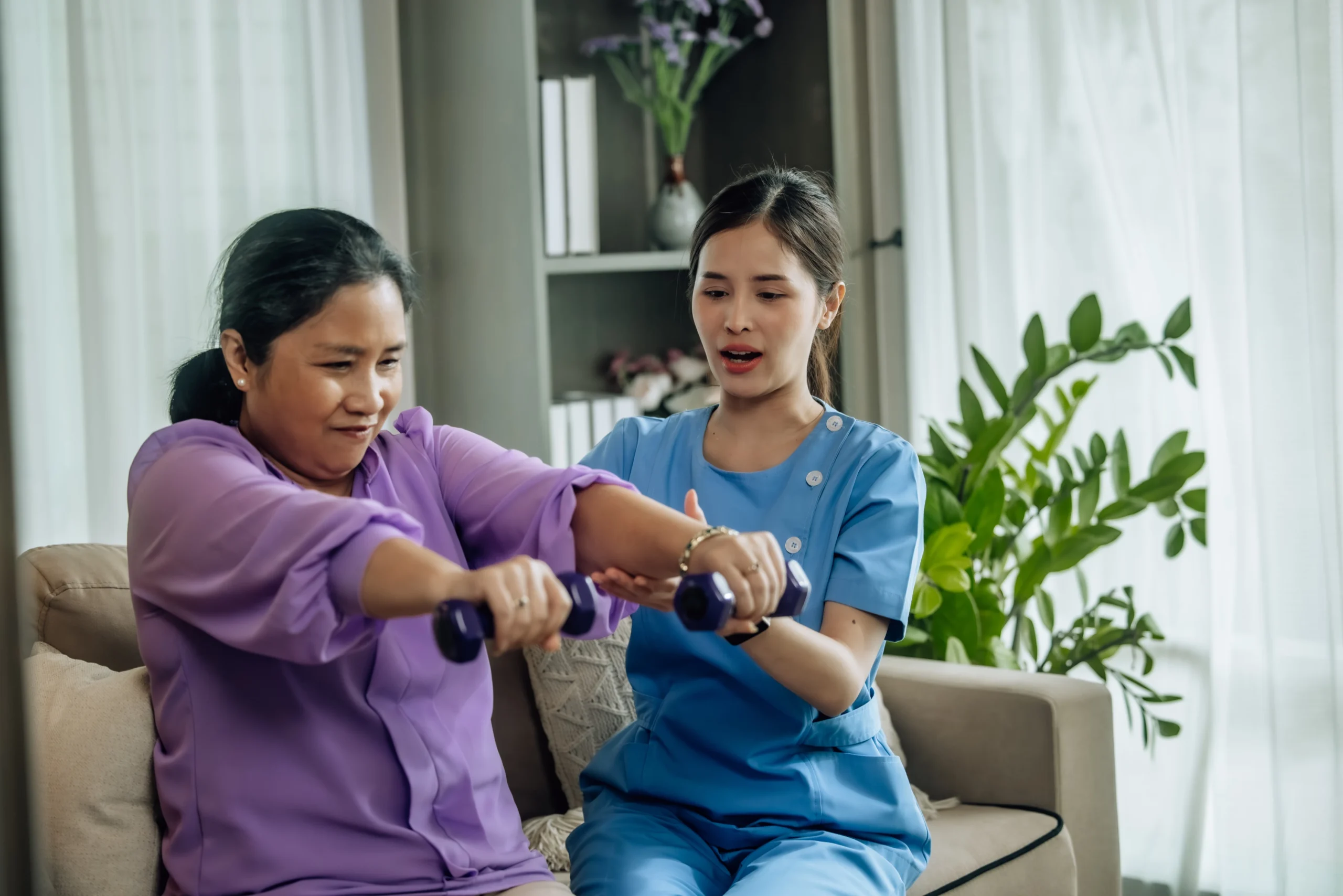Home Care Safety Tips for Families and Caregivers

Falls, wandering, and mobility issues are just some of the dangers that impact senior and disabled loved ones in a home environment. They can be a significant threat, but family and professional caregivers can ensure optimal health with the right safety tips. This article will serve as a checklist, guiding you through what you must do to protect your aging and differently abled relatives.
Home Care Tips to Keep Elderly and Disabled Loved One’s Safe
Families and professionals should take a step-by-step approach, considering each interaction their loved one makes throughout the day and determining how to eliminate dangers in various scenarios.
Wandering Prevention
Wandering is a common issue for people with dementia. They may wander off because they feel lost, disoriented, anxious, or hungry, thirsty, or need to use the bathroom. Caregivers can address this issue by:
- Keeping doors and windows locked
- Addressing needs-ensuring elderly relatives are well-fed and have bathroom access.
- Using tracking devices so loved ones can be found easily
Medication Management
Seniors and people with disabilities may take medications for various reasons. However, they may encounter issues with dosing. They may be unable to open bottles or understand the proper doses or interaction risks.
These problems can be addressed with the following strategies:
- Caregivers may place medications in a clearly marked, easy-to-open container, ensuring relatives get their proper dose each day
- A home aide may dispense medication daily for optimal supervision
- Specialized medications may be administered through shots or IVs
Home Modifications
Families may decide to make home modifications and install special equipment to make it easier for elderly parents or disabled loved ones to move around. For example, they may install:
- Grab bars so loved ones have mobility support when walking around the home
- Ramps to eliminate safety issues related to walking up and down stairs
- Doorway and hallway wideners that provide access for wheelchairs and walkers
- Non-slip flooring, which can be especially useful in the bathroom and kitchen, which tend to get slippery
Fall Prevention
Falls often occur in seniors and disabled people due to muscle weakness, poor balance, medication side effects, and symptoms related to chronic conditions. Caregivers can prevent falls by:
- Removing clutter from walkways
- Helping loved ones move around the home
- Improving lighting
- Fixing damage to flooring and stairways
- Installing grab bars and non-slip mats
Prestige Will Keep Your Loved One’s Safe
Keeping loved one’s safe isn’t easy, and family members often learn the hard way, after a loved one gets injured. Prestige provides training to staff members, ensuring loved ones stay safe. We have extensive experience with various aspects of care and prioritize communication with families, ensuring our clients are secure, even when they’re not in our care.
Our team provides care on various levels, from babies to elderly relatives and individuals with physical and mental disabilities. We have been serving our community since 1995, believing everyone has a right to a healthy, independent lifestyle. Contact us to learn how we can help your loved ones improve their quality of life.
FAQ
What should a 70-year-old be doing?
A 70-year-old should focus on maintaining a healthy and active lifestyle through physical activity and a nutritious diet. They should stay connected with family and friends to ensure optimal mental health.
How do we ensure safety in working as a caregiver?
Caregivers should also prioritize their safety. They should clean up hazards ASAP, ensure they use best lifting practices, wear appropriate clothing, be cautious with animals, and use the right tools.
What is an Emergency Plan for Older Adults?
Caregivers should develop an emergency plan for older adults for specific situations. This may include reaching out to emergency contacts, ensuring they have access to food and medications, packing essential documents, and arranging for shelter and transportation.
